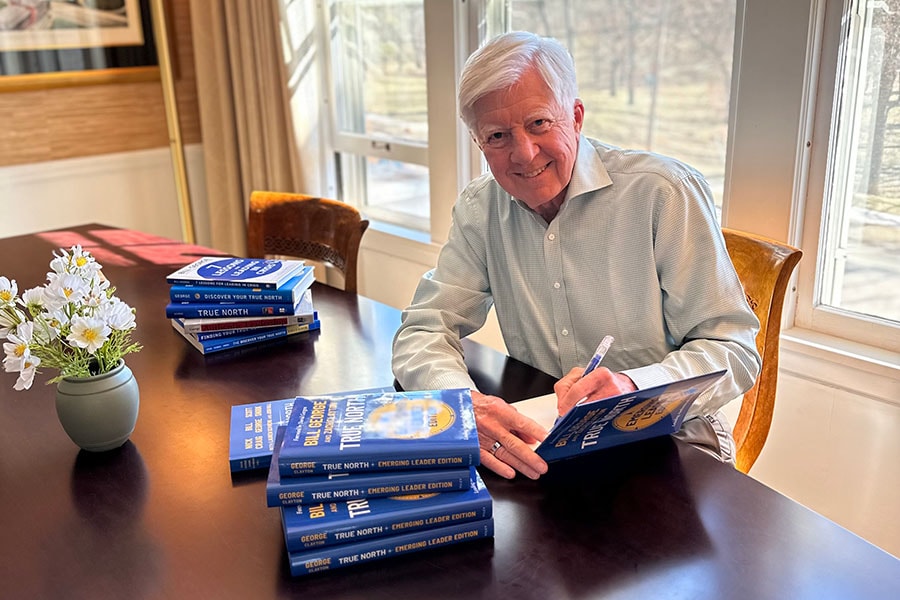
'Lead with your heart as well as your head': Bill George
Individual charisma, authority, and external validation are passé. Leadership 2.0 is all about authenticity, intrinsic contribution, and being purpose-driven, says Bill George, an executive fellow at Harvard Business School, the former chairman and CEO of Medtronic, and the author of 'True North: Emerging Leader Edition', 'Discover Your True North', 'True North', and '7 Lessons for Leading in Crisis'
 "Lead with your heart as well as your head as you develop your moral compass and emotional intelligence with the qualities of passion, compassion, empathy, and courage", says Bill George
"Lead with your heart as well as your head as you develop your moral compass and emotional intelligence with the qualities of passion, compassion, empathy, and courage", says Bill George
Q. Socio-political events in the past two decades have led to a rethinking of ‘leadership’ as a concept. How do you view this shift in perspective?
In the past two decades, authentic leaders have become the gold standard for leaders. Organisations have recognised the pitfalls of old style “command & control”—leaders who lead with ego, charisma, and power, often for their own financial gain. Today’s successful leaders like Microsoft’s Satya Nadella and General Motors’ Mary Barra lead with passion for their purpose, empathy and compassion for employees and customers, and courage to make bold decisions that benefit all their stakeholders. I have been an advocate for this approach to leadership for 20 years since I wrote my first book in 2003, Authentic Leadership, and I am extremely pleased to see it become the dominant form of leadership today.
Q. 20th century Vs 21st century leaders…
Many 20th century leaders followed the role model of GE’s Jack Welch to dominate everyone with their power, charisma, and decision-making at the top. Leaders of the 21st century recognise the importance of frontline employees who serve their customers and create a servant leadership culture. In addition to Satya Nadella and Mary Barra, some of the leaders who represent Leadership 2.0 are PepsiCo’s Indra Nooyi, Best Buy’s Hubert Joly, Xerox’s Ursula Burns and Anne Mulcahy, Merck’s Ken Frazier, Nike’s John Donahoe, Tata’s Ratan Tata, Unilever’s Paul Polman, Levi’s Chip Bergh, Ford’s Alan Mulally, and Infosys’s Narayana Murthy. I feature all of them in my new book, True North: Emerging Leader Edition. They represent the “best of the best” of Leadership 2.0.
Q. What will it take to be truly authentic?
To be truly authentic, leaders need to have humility and recognise they are serving their employees and their customers – not the other way around. That is what Nelson Mandela did as president of South Africa after spending 27 years in prison for a crime he didn’t commit. Medtronic CEO Omar Ishrak, who is currently Chairman of Intel, transformed the company by refocusing his 95,000 employees around the Medtronic Mission, and was always humble in speaking about his enormous success.







